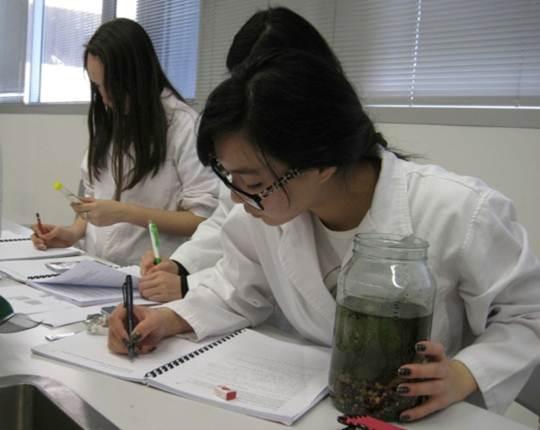Scientific writing is a fundamental skill for scientists but effective use of literature and good communication techniques are not always easy for undergraduates to grasp. This project developed online and face-to-face learning activities on academic integrity, plagiarism and using scientific literature for the first year Biocomplexity subject.
Team members:
- Dr Yvonne Davila (Faculty of Science)
- Dr Andrea Leigh (School of Environment, Faculty of Science)
- Ms Neela Griffiths (Institute of Interactive Media and Learning)
- Ms Ashley England (UTS Library)
What were the aims of the project?
Student development of scientific writing skills has previously been scaffolded in Biocomplexity; however, learning and development of academic integrity and referencing in science, relating to the graduate attribute Professional Skills, needed improvement. The aim of this project was to address these issues by building a resource students could use in their own time and at their own pace, before they had to write up their first scientific report.

Can you describe the project?
We wanted to build a resource that was relevant to the discipline of Science and was interactive. The resources focused on paraphrasing, avoiding plagiarism and correct referencing techniques. There were other university resources of a similar nature and while they are excellent, we felt our students would benefit from a science-specific approach. As they were required to write their first report in this subject, they could put the techniques into practice immediately. Although the activities were not marked, the resources were designed as preparation and online learning for the workshop, and the skills learnt would be applied and assessed in their first assignment.
We selected existing resources from the library and elsewhere and combined these with bespoke screencasts and an online tutorial that were completed prior to class. The existing in-class “mini-lecture" outlining referencing requirements for the scientific report was replaced with a collaborative learning activity requiring students to prepare material before attending class and allowing students to practice their referencing skills with peer feedback.
How did it go?
In the pilot program (Spring 2014), 60% of the 650 students completed the online tutorial on academic integrity and paraphrasing. Over 85% of students completed associated pre-class preparation required for their face-to-face tutorial on paraphrasing scientific literature. On average, students who completed the online tutorial performed better for referencing criteria in the report than those who did not attempt the tutorial. Evaluation surveys revealed that, following completion of the activities, students identified the importance of academic integrity and correct use of the scientific literature to a science career. We also received positive feedback about the usefulness of our resources in helping students use the scientific literature in their reports.
What did you learn?
It was a challenge to make the online resources relevant and interactive, so crafting and curating the resources required some thought. The benefit of putting so much thought into it initially means we have a sustainable set of resources that won’t need much change over time. We can use this into future semesters very easily.
About 60% of students completed the module and of course we would like to see this number go higher. At this stage we wouldn’t consider assigning marks, but will look at ways in which to emphasise that the online tutorial is a part of the curriculum even though marks are not directly assigned to completing it. The students themselves expressed how they benefited from the resource so perhaps ‘hearing it from previous students’ might be helpful.
Was there any follow on?
These resources will continue to be embedded in the curriculum. We’re adapting the resources for another subject and would also like to look at possibly adapting across other, similar faculties.
Want to know more?
Contact Yvonne Davila.

